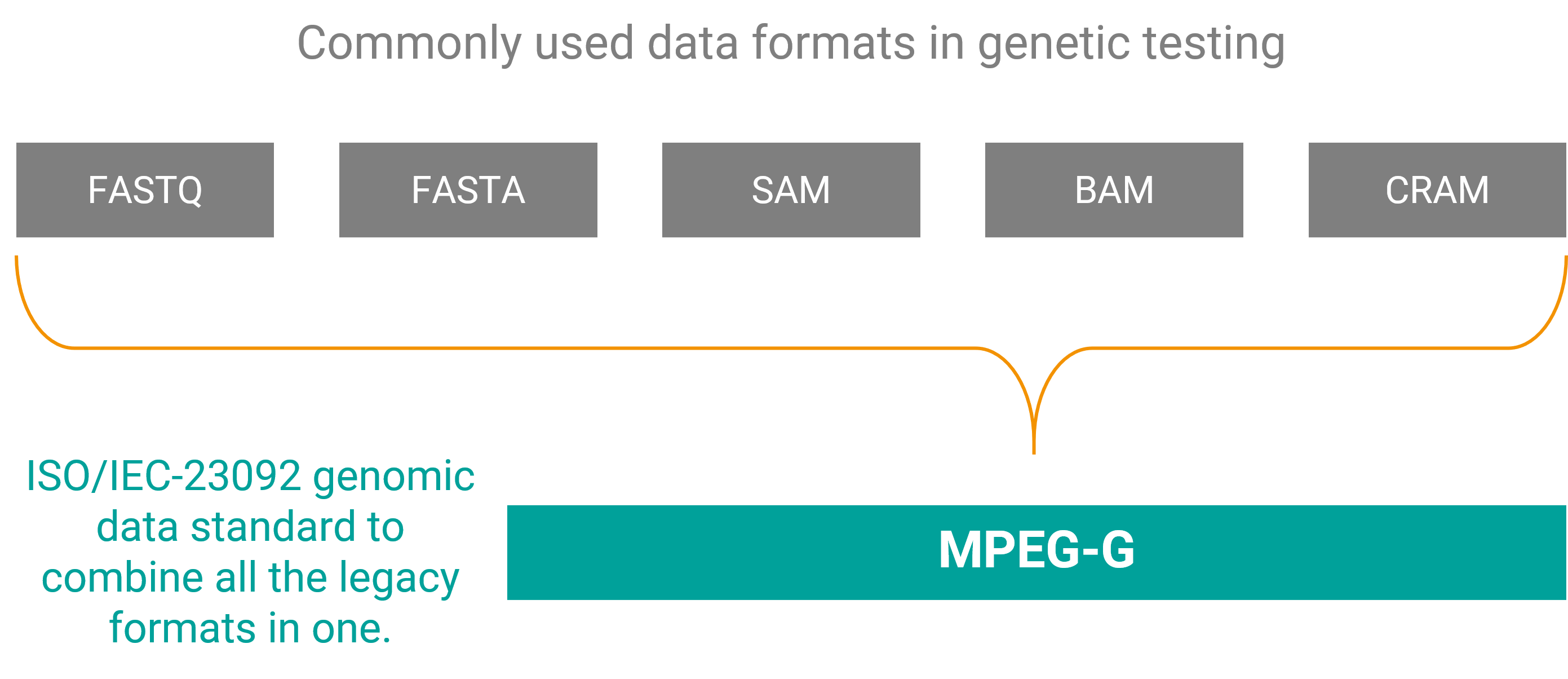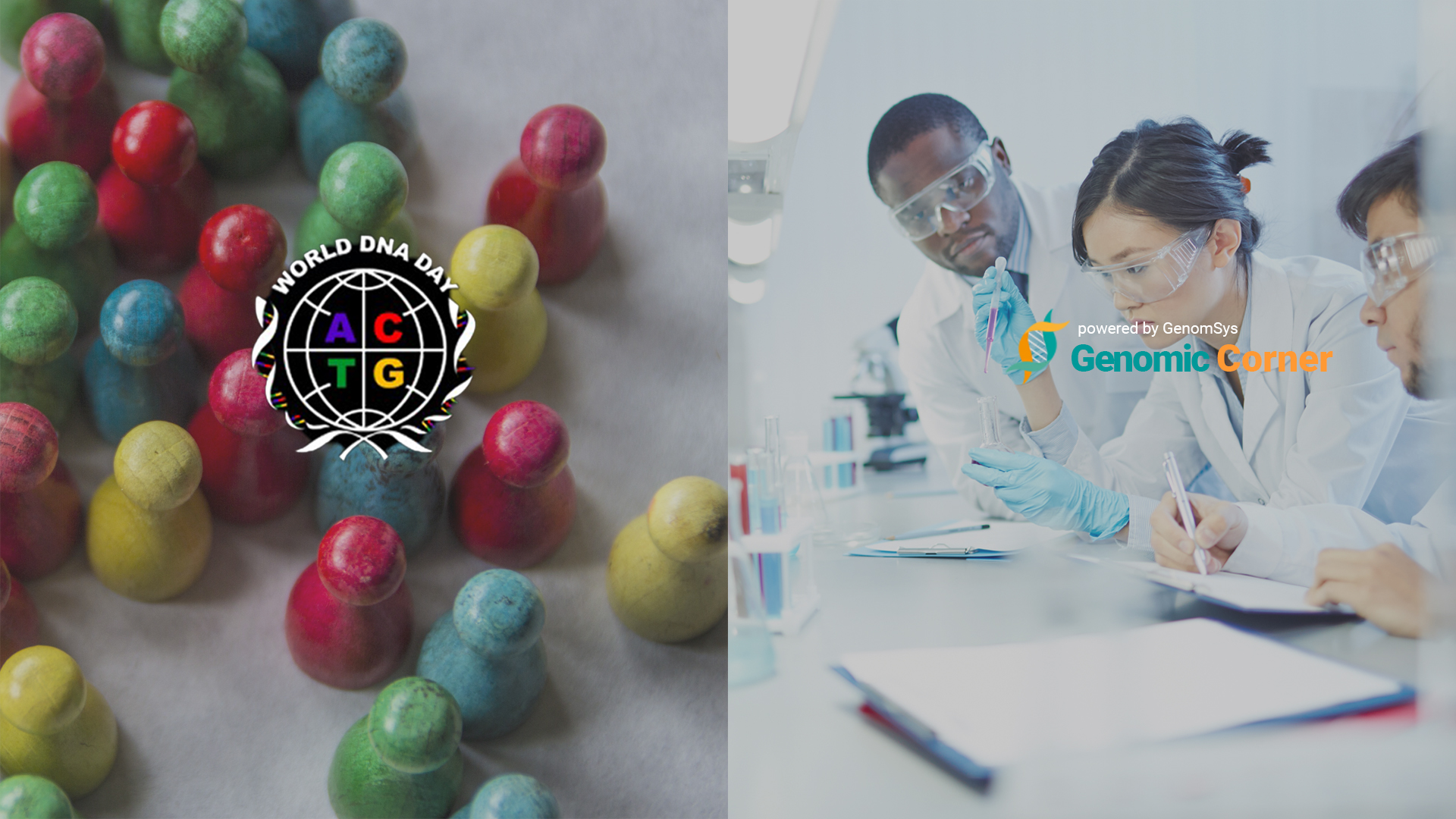Day 3, in anticipation of World DNA day on the 25th of April (this Sunday), today we provide you with further insights on the effect of genetic testing on society.
Genetic testing is a widely used support for the diagnostic and prevention of diseases and a powerful instrument for researchers worldwide to broaden the knowledge on how our bodies function and what can cause certain diseases. The DNA analysis can help shine a light on the genetic factors behind rare diseases or cancer. More than 6.000 rare diseases have a genetic cause, and 5% of all the cancer syndromes cases trace back to the genes [2,3]. More knowledge of our genes’ role in diseases determination will increase efficiency for genetic testing in preventing diseases and ultimately to a higher level of health for society.
However, the mere accumulation of genetic data only leads to the goal to a limited extent: it is necessary to frame the data into a proper context to obtain valuable information regarding diseases and process them correctly [4]. Curating new scientific knowledge is a time-consuming process: to get reliable information requires access to adequate information means and the interactions between several researchers.
In this process, sharing within the research community is a significant issue, currently hampered by technical limitations and by a patchwork of different national legislations. The country-specific various regulations ultimately lead to a slowdown in scientific progress. But hope is on the horizon with multiple initiatives across Europe to harmonize the legal regulations [5].
In addition to the legal framework, technical standardization can also lead to an acceleration of this exchange. Currently, most genetic analyses rely on two to three different data formats. Standardizing these file formats to a single format would reduce the complexity of the processes and ultimately accelerate the exchange.
It is crucial to accelerate data sharing while maximizing data security, especially for sensitive data such as genetic data. The result is a dynamic research effort that can rapidly provide new insights into diseases and ultimately provides society with improved treatments and prevention of diseases. Including a high degree of data privacy will enable each individual to take charge of their own most intimate information and lead to a higher level of trust in research and genetics.
Its unified syntax encompasses legacy formats from raw sequencing data to variant annotations and metadata, making it possible to replace FASTQ, FASTA, and SAM (and its compressed forms BAM/CRAM) with a single one. Using a single file format specification based on an open specification can simplify the data analysis process by enabling the creation of an ecosystem of interoperable tools and applications that do not need any “data sanitization” prior to data exchange.

Finally, MPEG-G natively specifies a standardized syntax to support encryption of custom genomic information (e.g., Genes, Variants, or Chromosomes) with different levels of access granted to users according to the related privileges. For example, enabling different research facilities granting to others solely the needed DNA sequences, Genetic variants, or Annotations and providing down to the individual the key to take self-ownership of its own DNA.
By Lucas Laner on April 22, 2021.
References:
[1] https://www.genome.gov/genetics-glossary/Complex-Disease
[2] https://www.rarediseaseday.org/
[3] https://www.mgz-muenchen.de/files/mgz/Download/Patienteninformation/Patienteninformation%20-%20Erbliche%20Krebserkrankungen.pdf
[4] Bubier J, Hill D, Mukherjee G, et al. Curating gene sets: challenges and opportunities for integrative analysis. Database (Oxford). 2019;2019:baz036. doi:10.1093/database/baz036
[5] https://www.politico.eu/article/europe-eyes-new-rules-for-wild-west-of-dna-testing/?utm_source=politico&utm_medium=link&utm_campaign=news




